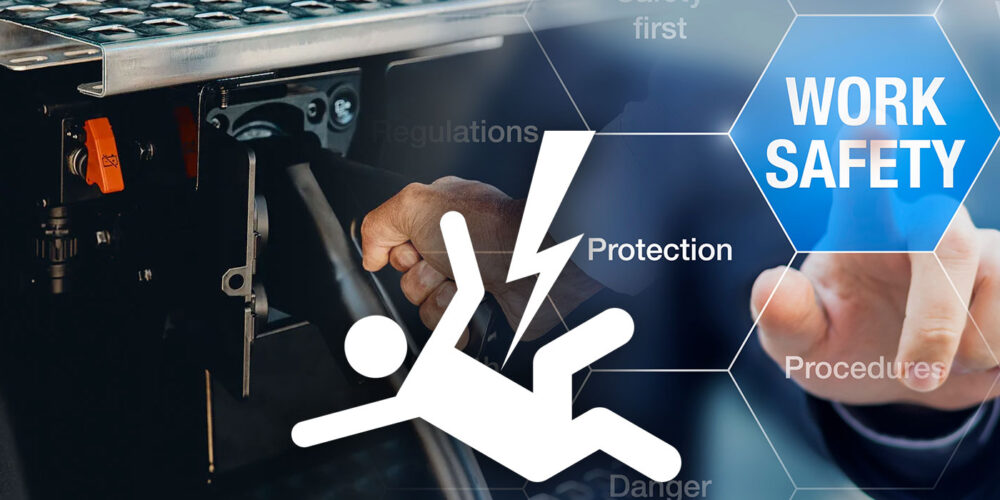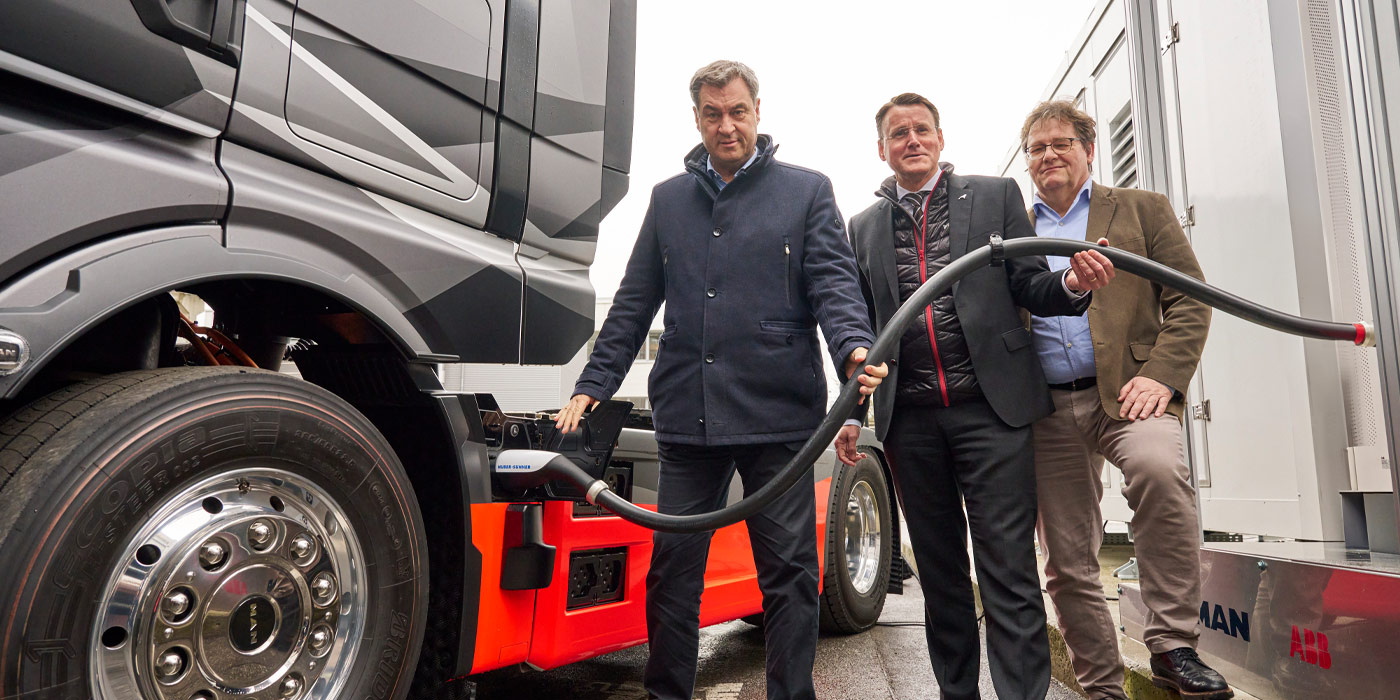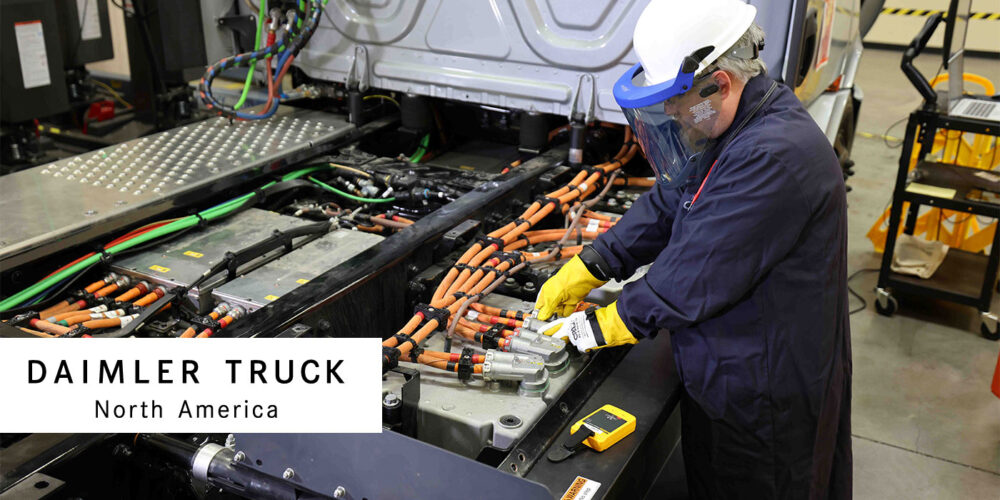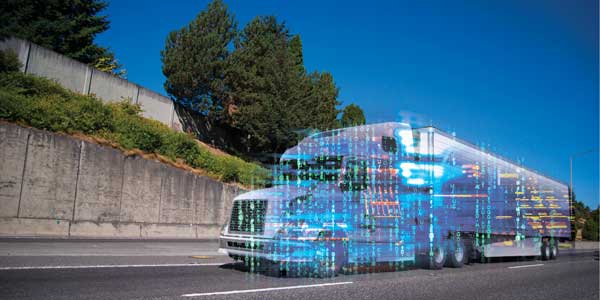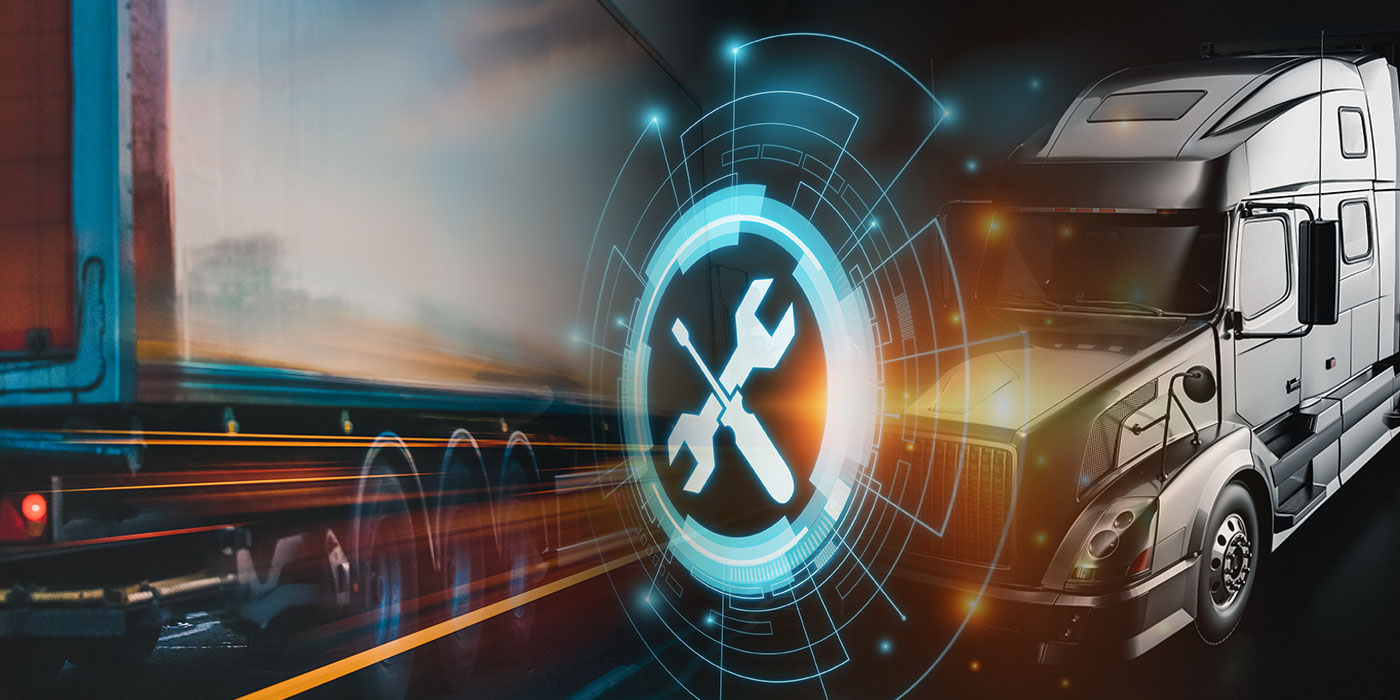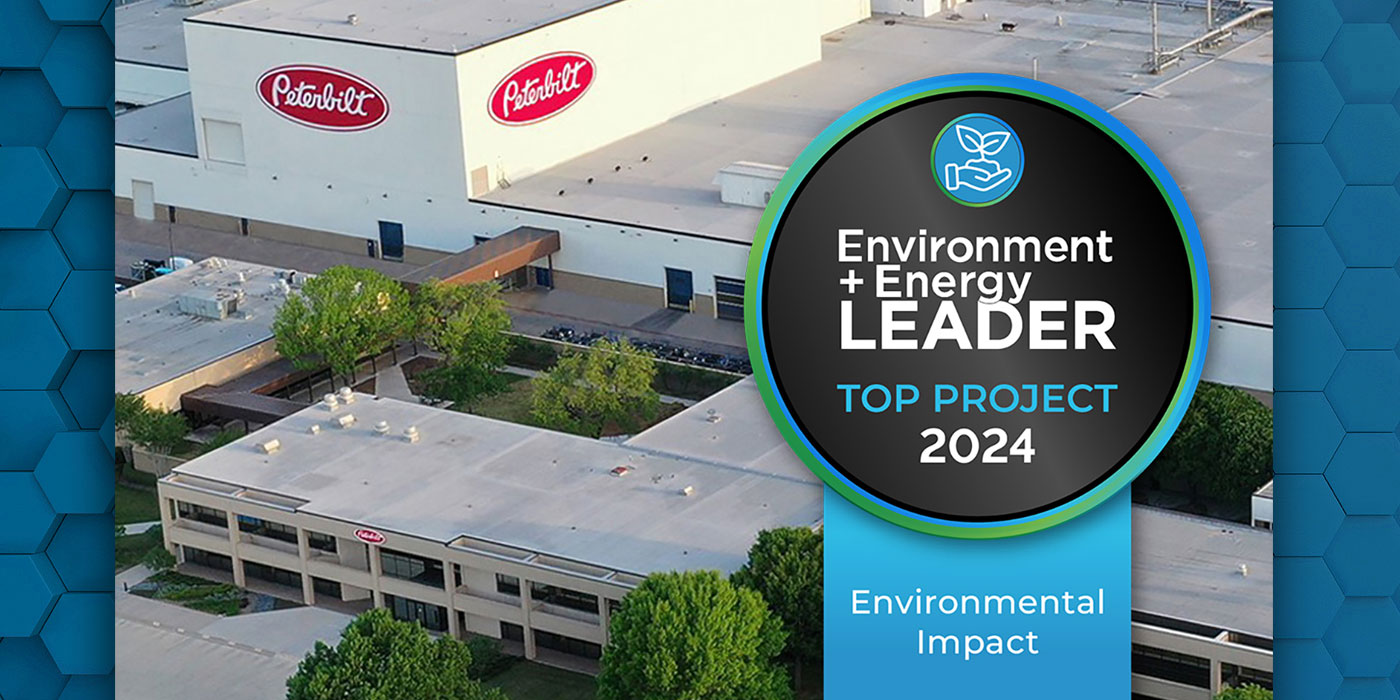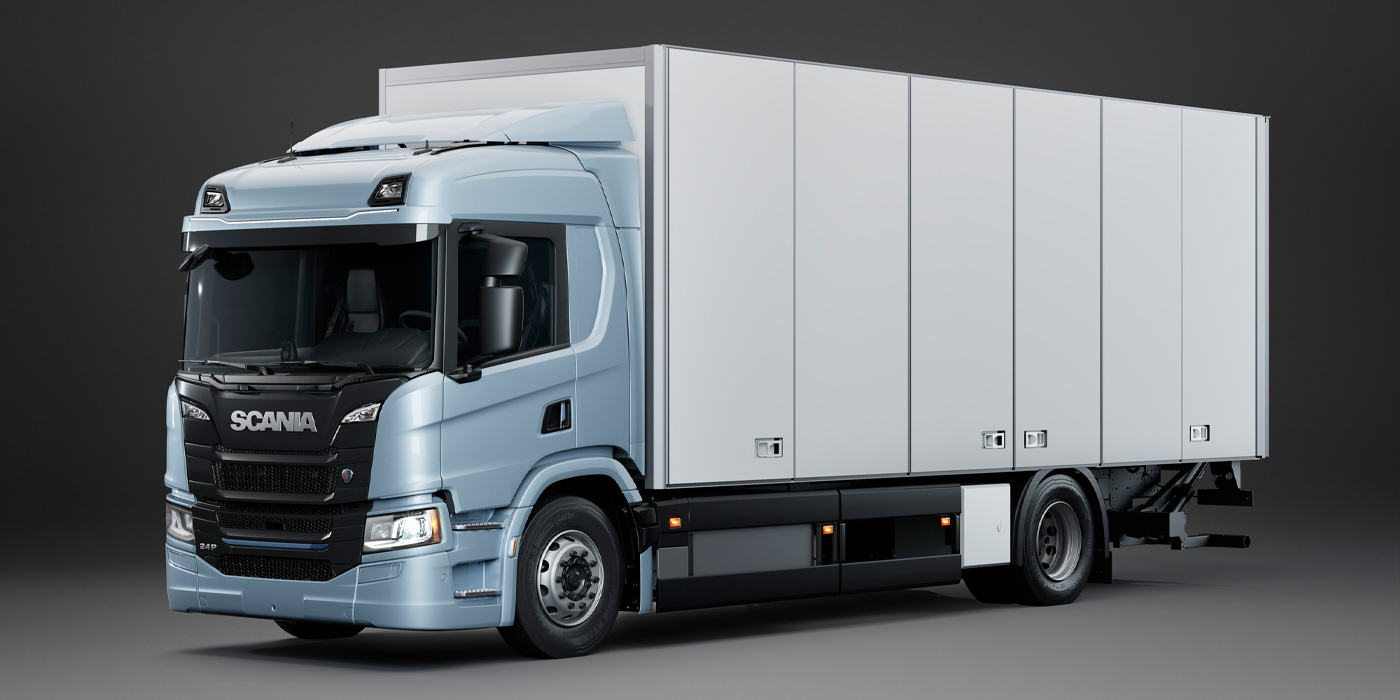The years 2039 and 2040 mark the pivotal point at which OEMs like Daimler Truck North America (DTNA) and Volvo Trucks North America, respectively, aim to have phased out traditional ICE vehicles from their product lines in favor of electric, hybrid and other zero-emission alternatives. While application and duty cycle will determine when you jump into the zero-emissions deep end, the challenge facing all fleets is that the pool of trained technicians and shops equipment to service electric vehicles is shallow. The good news? You don’t have to wait until EVs are rolling into your bays. Preparation can start now.
It all starts with safety, and for good reason.
“To become a [Mack Trucks] Certified Electric Vehicle dealer, technicians must be trained and have met stringent requirements to ensure they have the proper knowledge to safely work with high voltage Li-ion batteries and Energy Storage System (ESS) batteries,” said David Thomasma, dealer development manager at Mack Trucks.
In addition to Mack Trucks, every heavy-duty, on-highway OEM offers electric trucks right now. DTNA, Kenworth, Mack Trucks, Navistar, Peterbilt, and Volvo Trucks have been working with their dealer networks to certify those service locations in order to support the EVs that they’re sending into fleet lineups. Right now, a bulk of the service responsibility falls on the OEM dealer, who is learning the ins and outs of EV service along with the fleet.
DTNA, for example, offers its CVE13 HV3 EV class, where the focus is placed on safety issues, terminology, and procedures that are necessary to safely repair EVs.
“They’ll be able to combine this information with their existing knowledge of how your facility already operates in order to judge what sorts of changes you’ll need to implement and equipment that you’ll need,” said Gregory Bowen, eMobility trainer/developer at DTNA. “DTNA also publishes our e-Mobility Service Location Guide on the DTNA Portal that gives a great overview of the training, tools and equipment needed to successfully service these vehicles.”
While broader, independent heavy-duty battery electric truck service training has lagged behind OEMs that have been certifying their own dealer locations and customers, there’s still a lot we can learn from these programs as they forge the EV blueprint.
First, it’s worth repeating that safety comes before all else. Cautionary protocols and requirements will be the most important difference in EV service. The aforementioned ESSs that power electric trucks also pose potential dangers that must be taken seriously. High-voltage batteries contain large amounts of energy that can cause serious injuries like electrical shock, burn or even death if not handled properly. ESS batteries can release flammable electrolytes or gasses if damaged or punctured, which poses a fire risk. Additionally, in extreme temperature conditions or when the battery management system fails, there is a possibility of an explosion.
Kyle Maki, the director of zero emissions vehicle deployment and customer experience at Navistar, noted that the company places significant emphasis on situational awareness in electric vehicle servicing throughout its training, educating technicians on industry best practices such as working together with another technician during any service event and knowing where high-voltage safety equipment is located within their shops.
“During these training sessions, we focus on the appropriate personal protective equipment (PPE), lock-out/tag-out procedures, as well as best practices while servicing EV,” Maki said. “Once we cover basics and best practices of high voltage safety, we then focus on vehicle diagnosis and repair for high-voltage systems.”
EV best practices include the presence of equipment like safety barriers that help to prevent accidents and signs that warn technicians of potential hazards.
Personally protect yourself before you wreck yourself
Your shop will require specialized, insulated tools and PPE that are specifically made to work on high-voltage systems, as well as a crisis management plan in place to mitigate the severity of any potential hazard that may occur while servicing the EVs.
“The [Volvo Trucks] Certified EV Dealer process also requires that proper safety equipment is on site for technicians to use while working with our electric trucks,” confirmed Bobby Compton, product marketing manager for regional haul at Volvo Trucks. “This includes safety barriers, signs, proprietary tools, insulated tools and PPE.”
Personal protective equipment, such as gloves, eye protection and proper EH-rated shoes or boots, is also important to protect technicians from electrical hazards. Proprietary and insulated tools are specially designed for working on electric trucks and reduce the risk of shock.
What about the tools already in today’s shops? Much of the existing equipment and skills used for servicing and repairing ICE trucks can be transferred to electric trucks.
“While there are some additional tools that will be required to service this new drivetrain, there really won’t be any large-scale facility changes necessary to service these new components,” DTNA’s Bowen said.
While shops will still need to invest in some specialty tools, a proper lift for EVs and AC/DC charging infrastructure, Maki and Bowen both explained that the majority of tomorrow’s technicians are going to be able to complete most of their diagnostics/troubleshooting from a laptop.

